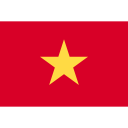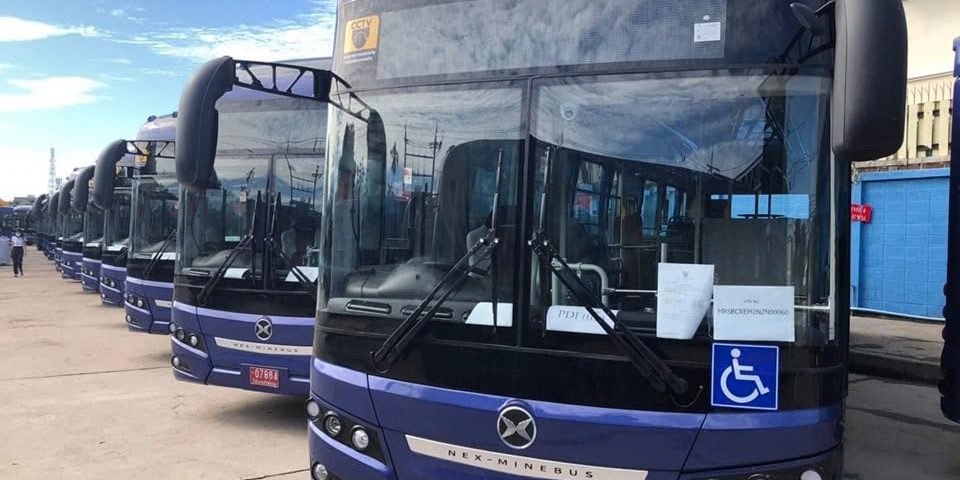The electric bus project in Bangkok emerged as part of Thailand’s efforts to transition to sustainable transportation and reduce greenhouse gas emissions. The Thai government has set a goal of achieving carbon neutrality by 2050. Within the transportation sector, Thailand aims for 30% of vehicles to be electric by 2030. This ambition is supported by policies encouraging investment in electric vehicle (EV) production and infrastructure, aligning with Thailand’s aspiration to become the EV hub of Southeast Asia.
Scope of the electric bus project: The project plans to deploy electric buses on 123 public bus routes in Bangkok, covering nearly half of the city’s public transportation network, replacing internal combustion engine vehicles. The electric buses target three main objectives: improved energy efficiency, lower emissions, and enhanced customer experience (at similar fares). However, to attract investors, the project must demonstrate financial viability, with a return on investment (IRR) exceeding investor expectation.
The role of ITMO credits: Initial calculations showed that without revenue from carbon credits, the project generated 212.6 million baht annually with an IRR of 1.33%, falling short of the investor’s expected return of 5.24%. With the inclusion of ITMO carbon credit revenue, annual project revenue increased to 255.78 million baht, raising the IRR to 9.3%, significantly exceeding investor expectations.
Collaborative efforts for success: Achieving high carbon credit prices requires coordinated efforts between the government and the private sector. These efforts include ensuring a robust and transparent mechanism for carbon credit certification and aligning the project with international carbon credit market standards to maximize its value.
Enabling government
Since October 2013, the Thailand Greenhouse Gas Management Organization (TGO) has developed the Thailand Voluntary Emission Reduction Program (T-VER). T-VER was established to support voluntary greenhouse gas emission reduction activities within the country. It is one of Thailand’s strategic initiatives to promote the domestic carbon market and meet the targets outlined in the Nationally Determined Contributions (NDCs) under the Paris Agreement. The program focuses on community-based emission reduction projects, including sectors such as renewable energy, energy efficiency, waste management, agriculture, and forestry. T-VER leverages methodologies from the Clean Development Mechanism (CDM) and similar carbon credit programs, such as Japan’s J-VER.
In parallel, Thailand’s carbon offset program, T-COP, is part of the national effort to promote greenhouse gas emission reductions. Managed by TGO, it is a component of the voluntary carbon credit system under T-VER, allowing organizations, individuals, and businesses to participate in the carbon credit market. T-COP operates on a mechanism where participating organizations reduce greenhouse gas emissions through mitigation or carbon dioxide removal projects (such as reforestation or emission-reducing technologies), thereby generating carbon credits. These credits can then be sold to offset emissions from other organizations. These efforts by Thailand increase the trust of international partners.
On June 24, 2022, the Environment Ministers of Thailand and Switzerland signed a cooperation agreement on climate action under Article 6 of the Paris Agreement. This bilateral agreement outlines cooperation between the two countries and establishes a legal framework for implementing climate protection activities. Letters of Authorization (LOAs) were issued by both sides for project participants in Thailand and Switzerland. The KliK Fund (Switzerland) will support CO2 emission reduction activities in countries that have signed bilateral climate agreements with Switzerland. Through the issuance of Internationally Transferred Mitigation Outcomes (ITMOs), Switzerland and Thailand are the first countries to successfully use the collaborative approach under the Paris Agreement to make significant progress in cooperative climate action.
Pioneering enterprise
Founded in 2006, Energy Absolute (EA) is one of the largest renewable energy companies in Thailand, operating four solar energy projects and eight wind power projects. With 64 subsidiaries, primarily in the energy sector, EA has pioneered and expanded into sustainable transportation infrastructure and electric vehicle charging stations in Thailand. EA’s vision is stated as “a leader in the renewable energy business, using modern, up-to-date, and environmentally friendly technology for the benefit and fairness of consumers, shareholders, partners, and employees.” The Asian Development Bank (ADB) has been involved in safeguarding agreements for EA, including issuing its first green bond in 2019, funding the first certified green loan in 2020, and financing electric ferries in 2022.
In March 2022, EA announced an investment of over 2 billion Thai Baht into the electric bus charging station system in Thailand. Somphote Ahunai, Chairman of EA’s Strategic Planning Committee, made the announcement, stating that the renewable energy developer would build charging stations throughout the capital. A year later, Chatrapon Sripratum, Vice President of the Investment Planning and Strategic Development Department at EA, said: “Bangkok E-Bus is the first program developed under Article 6 of the Paris Agreement in Asia and one of the first globally. By implementing this program, EA is playing a pioneering role in climate protection cooperation in Thailand. This contribution toward a decarbonized economy will serve as a flagship program and inspire other private sector entities in Thailand to scale up their climate actions.” Through the issuance of ITMO credits, Switzerland and Thailand are the first countries to successfully use the collaborative approach under the Paris Agreement to make significant progress in cooperative climate action. KliK (Switzerland) will purchase ITMO credits from EA, the project owner in Thailand.
Multilateral effort
On December 6, 2023, ADB issued its first loan worth 3.9 billion Thai Baht (approximately USD 110 million) to EA for the purchase of 1,200 electric buses. These electric buses will replace internal combustion engine buses in Bangkok, supporting the use of clean public transportation in Thailand. The financing package includes loans worth 1.3 billion Thai Baht from ADB, JICA, and EXIM Thailand, with ADB acting as the lead arranger, mobilizing both domestic and international private sector capital. The total project cost is estimated at 6 billion Thai Baht. The ASEAN Catalytic Green Finance Facility (ACGF) also provides technical assistance for the market study on electric bus electrification.
On January 9, 2024, Switzerland and Thailand reached a groundbreaking carbon credit transaction agreement under Article 6.2 of the Paris Agreement. Switzerland’s KliK Fund purchased 1,916 ITMO credits from EA for its electric bus project in Bangkok. KliK and EA issued a joint statement: “The ITMOs will be used by KliK to fulfill its offset obligations under Switzerland’s CO₂ Act. Switzerland intends to use these ITMOs to achieve its national climate targets under the Paris Agreement. To avoid double counting, Thailand has committed to adjusting its greenhouse gas inventory in line with the amount of mitigation results transferred to Switzerland.”
The technical measurement and monitoring of emission reductions are carried out by CCME, a Thai company recognized as a qualified managing entity under TGO’s operational programs. EA signed a service agreement with CCME to facilitate the creation of credits from the project activities. Under this agreement, CCME receives operational data from the bus operator as well as the charging station operators. Using third-party data and T-VER methodologies, CCME generates the necessary documentation to request T-VER for the issuance and recognition of the transferred mitigation results. These T-VER credits are then approved by TGO and credited to EA’s registration account, from which they are transferred to KliK’s account.
Vietnam’s future
The electric bus project in Bangkok serves as a prime example of international cooperation in the field of greenhouse gas emission reduction. The project not only brings environmental benefits but also contributes to the economic and social development of Thailand. The lessons learned from the issuance and management of standards, as well as the issuance and management of government project authorization letters (LOAs), will be highly valuable for Vietnam in promoting similar projects for urban buses.
- T-VER is designed with stringent criteria to ensure transparency, verifiability, and alignment with sustainable development goals. All projects must demonstrate the ability to reduce greenhouse gas emissions compared to business-as-usual (BAU) and avoid double counting of credits. Carbon credits from T-VER can be traded on the voluntary market or used for offsetting emissions, contributing to the promotion of domestic green development. This is one of Southeast Asia’s leading carbon offset programs, providing valuable lessons for Vietnam in developing similar standards.
- While Thailand is also planning to develop and operate an ETS similar to Vietnam’s, the voluntary emission reduction standard T-VER and Thailand’s T-COP offset mechanism are foundational tools that facilitate the implementation of emission reduction projects, especially for sustainable public transport projects like electric buses. Vietnam needs to develop voluntary emission reduction standards similar to T-VER, linked with the issuance of LOAs for international trade projects.
- Thailand uses a system of monitoring, measurement, and verification (MRV) of emission reduction effectiveness by authorized organizations (such as CCME), ensuring transparency and accuracy in carbon credit transactions. Vietnam should build a reliable monitoring and verification system for emission reductions, cooperating with international agencies to ensure transparency or authorize domestic organizations such as TraceVerified to carry out these tasks.
- Thailand uses the CA tool to commit to adjusting its emission inventory to avoid double counting in ITMO transactions, ensuring compliance with Article 6.2 of the Paris Agreement. Vietnam needs to establish a legal framework (draft amendment of Decree 06/2022) and a transparent adjustment process when participating in international credit transactions to avoid duplication or fraud. Pilot implementations can be done for credit transactions with South Korea and Singapore based on the MOUs Vietnam has signed under Article 6 of the Paris Agreement.
Author: Binh BUI, published in The Saigon Times, volume 52–2024 (1776), date 26 December 2024.




